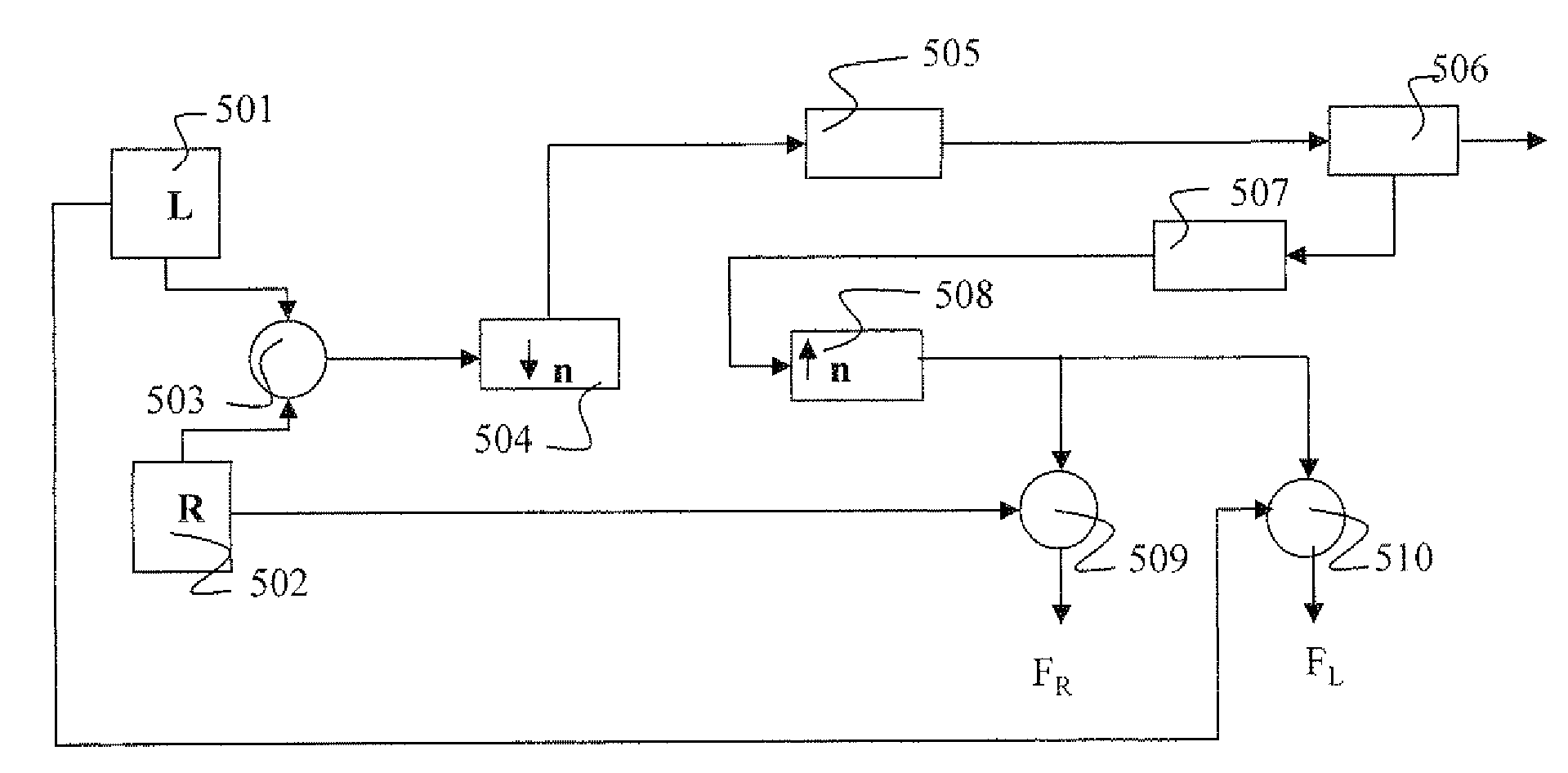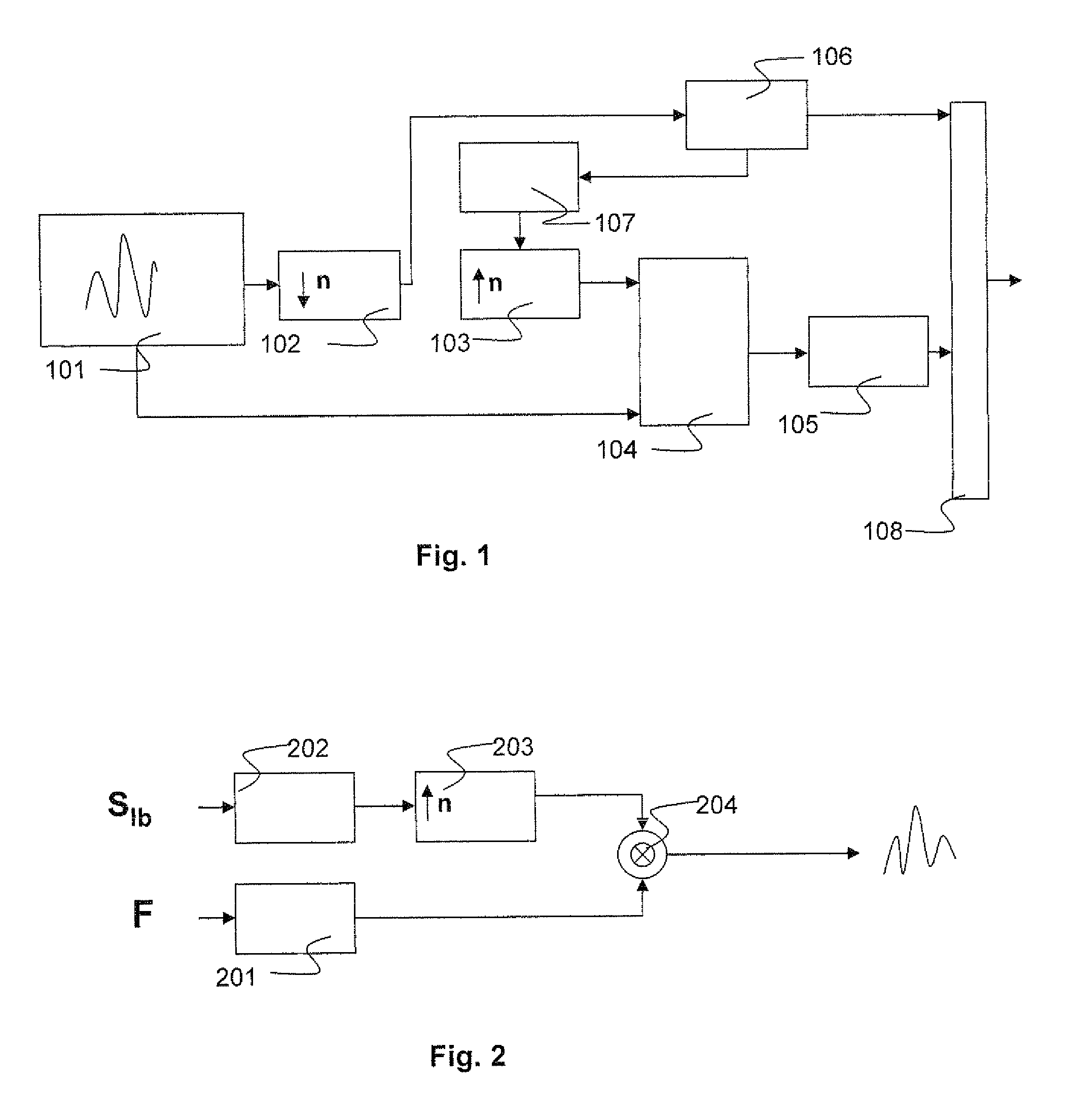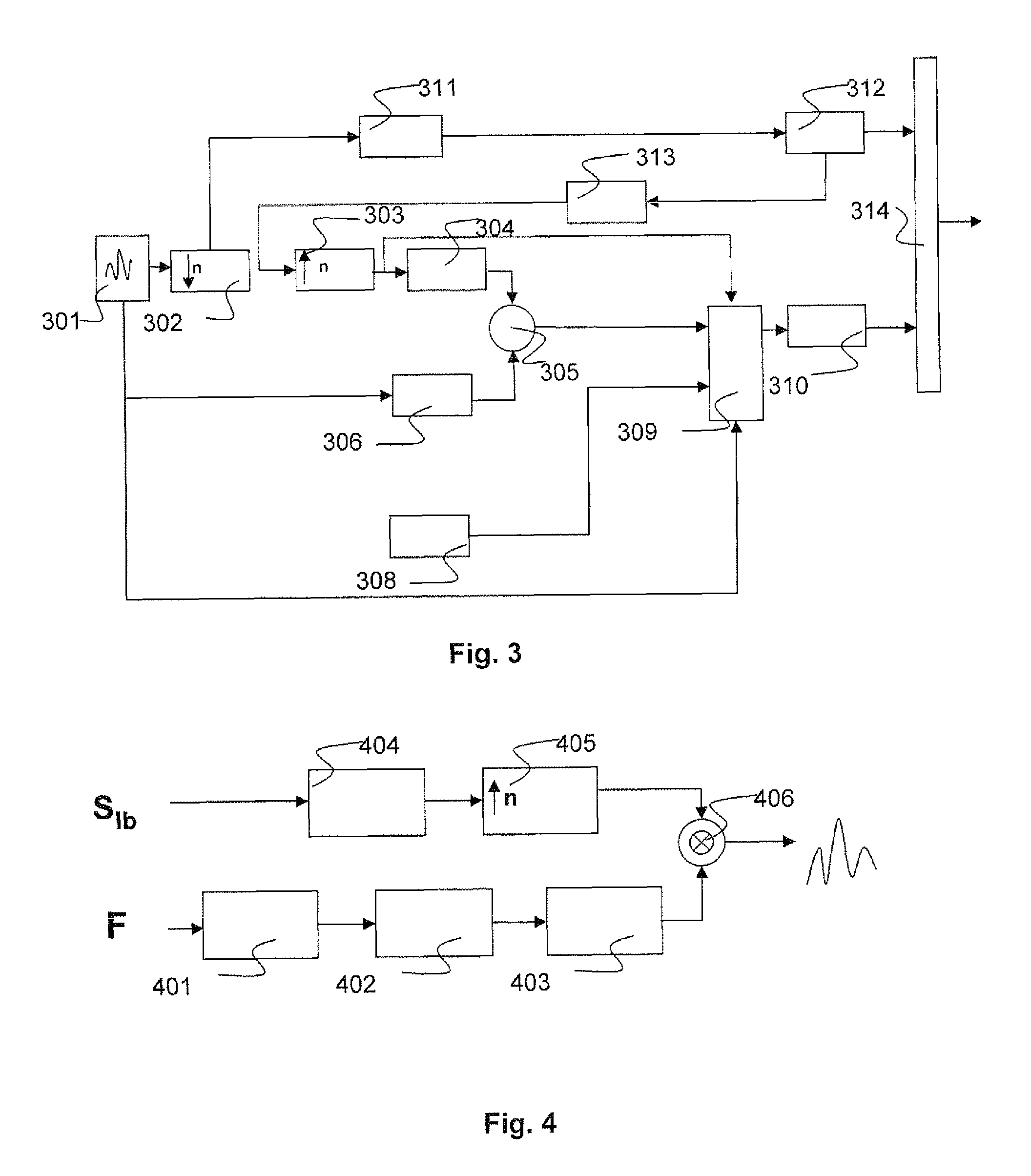Audio encoding method and device
a technology of which is applied in the field of audio encoding method and encoding device, can solve problems such as affecting the quality of the signal, and achieve the effect of simple and inexpensive perception of the signal and good quality
- Summary
- Abstract
- Description
- Claims
- Application Information
AI Technical Summary
Benefits of technology
Problems solved by technology
Method used
Image
Examples
Embodiment Construction
[0030]FIG. 1 shows the encoding method in general terms. The signal 101 is the source signal that is to be encoded, and this signal is then the original signal not limited in terms of frequency. Step 102 shows a step of frequency limitation of the signal 101. This frequency limitation can for example be implemented by a subsampling of the signal 101 previously filtered by a low-pass filter. A subsampling consists of keeping only one sample on a set of samples and suppressing the other samples from the signal. A subsampling by a factor of “n” where one sample out of n is kept makes it possible to obtain a signal where the width of the spectrum will be divided by n. n is here a natural integer. It is also possible to effect a subsampling by a rational ratio q / p; supersampling is carried out by a factor p and then subsampling by a factor q. It is preferable to commence with supersampling in order not to lose spectral content. For a change in frequency by a non-rational ratio, it is pos...
PUM
 Login to View More
Login to View More Abstract
Description
Claims
Application Information
 Login to View More
Login to View More - R&D
- Intellectual Property
- Life Sciences
- Materials
- Tech Scout
- Unparalleled Data Quality
- Higher Quality Content
- 60% Fewer Hallucinations
Browse by: Latest US Patents, China's latest patents, Technical Efficacy Thesaurus, Application Domain, Technology Topic, Popular Technical Reports.
© 2025 PatSnap. All rights reserved.Legal|Privacy policy|Modern Slavery Act Transparency Statement|Sitemap|About US| Contact US: help@patsnap.com



